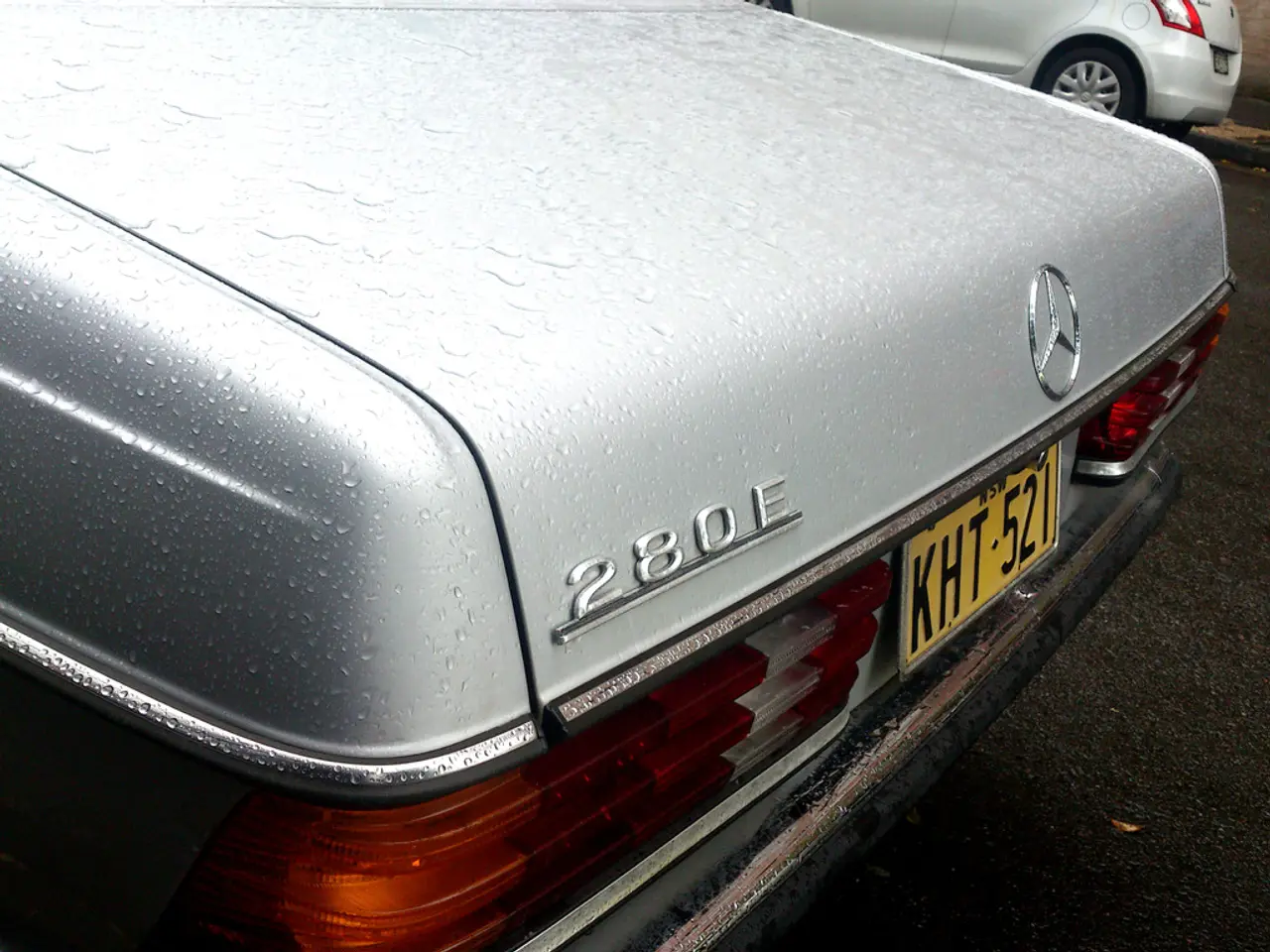Drop in Mercedes victories exceeds 50% - Drop in Mercedes profits surpasses the 50% mark
Mercedes-Benz Announces Cost-Cutting Measures to Improve Profitability
In a recent announcement, Mercedes-Benz, the Stuttgart-based automaker, revealed a comprehensive cost-cutting program aimed at improving profitability and sales, particularly in the face of challenging market conditions.
The company's efforts are centred around its "Next Level Performance" program and related initiatives. These measures are designed to reduce production and fixed costs, optimize supply chains, and adapt production locations.
One of the key strategies involves relocating production to lower-cost countries like Hungary, which is 70% cheaper than Germany, and increasing local production in key markets such as China and the U.S. This move is intended to minimize exposure to tariffs and reduce costs.
Mercedes is also collaborating with suppliers to standardize components, reduce material costs, and apply modular designs. Notably, through the BEAT26 program, the company aims to drive sustainable cost reductions across its value chain.
Digital transformation is another focus area. Investments in AI, digital twin technologies, and automation are designed to streamline research, development, and production processes, lowering retooling costs and accelerating new model launches.
In terms of workforce adjustments, Mercedes is offering voluntary buyouts, implementing hiring freezes, and freezing salaries for executives. These measures are expected to generate roughly €2.5 billion in savings by 2025.
Given the sales slump in China—Mercedes’ largest market, facing almost a 20% year-over-year decline due to intense competition from cheaper domestic electric vehicle brands—the company plans to lean more heavily on luxury top-end models with bigger margins while keeping costs tight to soften the financial impact.
These measures have already delivered financial benefits. In Q2 2025, cost-cutting contributed about €800 million in savings, improving return on sales (ROS) by 3 percentage points and offsetting some tariff-related margin pressures.
However, Mercedes-Benz's China sales challenges remain significant given the intense local competition and price sensitivity, leading to weaker unit sales despite slight market volume growth.
For the current fiscal year, Mercedes-Benz expects a significant decrease in group revenue, with sales being significantly lower. Last year, the company's net income decreased by over 28% compared to the previous year, to 10.4 billion euros. The adjusted profit margin for the passenger car division of Mercedes-Benz is expected to be between four and six percent by 2025, down from 8.1 percent in the previous year.
In the first half of the year, Mercedes-Benz's revenue fell by 8.6%, from 72.6 billion euros to around 66.4 billion euros. The operating result (EBIT) also decreased by around 55%, from 7.9 billion euros to around 3.6 billion euros. The company's net income decreased by 55.8% in the first half of the year, from around 6.1 billion euros to around 2.7 billion euros.
No specific information was provided regarding a recovery or improvement in profit or revenue for the second half of the year.
[1] Mercedes-Benz Press Release
[2] Reuters Article
[3] Bloomberg Article
[4] CNBC Article
The Commission, understanding the financial strain faced by Mercedes-Benz, has also taken a number of steps to ensure that its financial proposals are implemented, offering potential funding options for initiatives like cost-cutting and digital transformation.
In light of the challenging market conditions, the Commission's business strategy aligns with Mercedes-Benz's, promoting cost reductions, optimized supply chains, and sustainable cost savings—essential elements in the automaker's "Next Level Performance" program.




